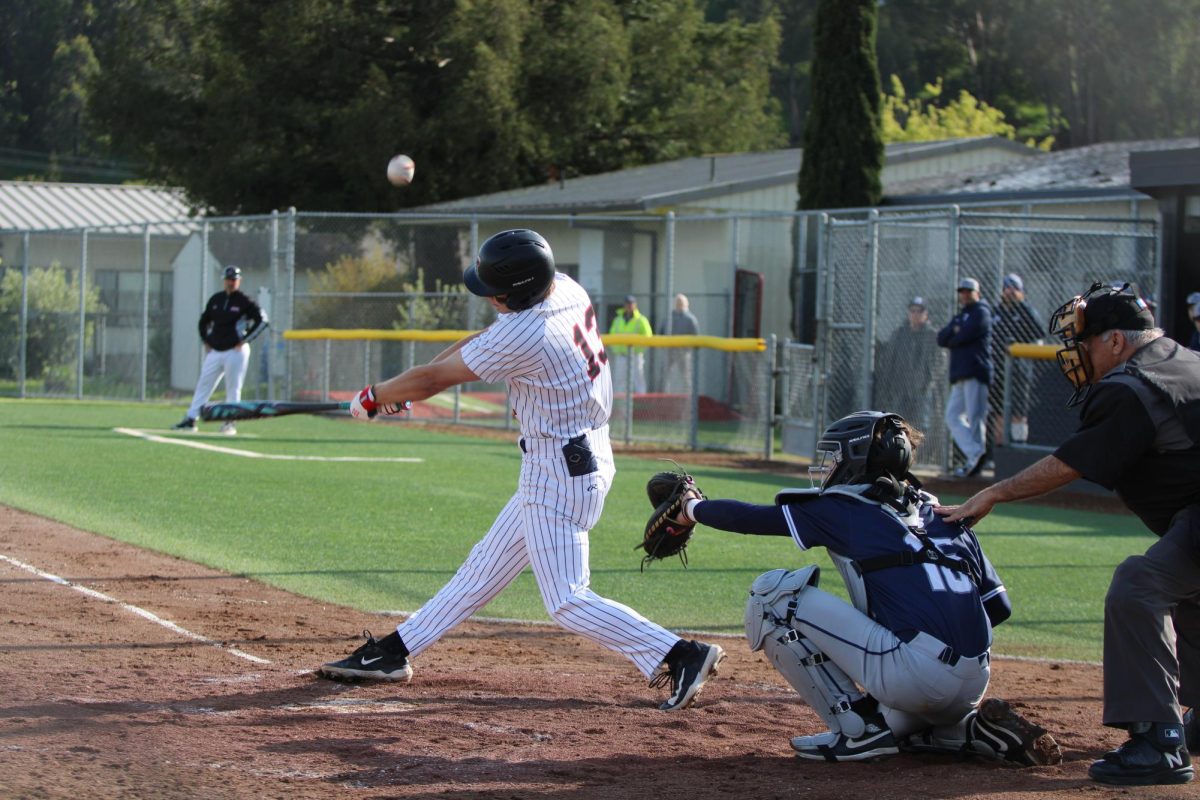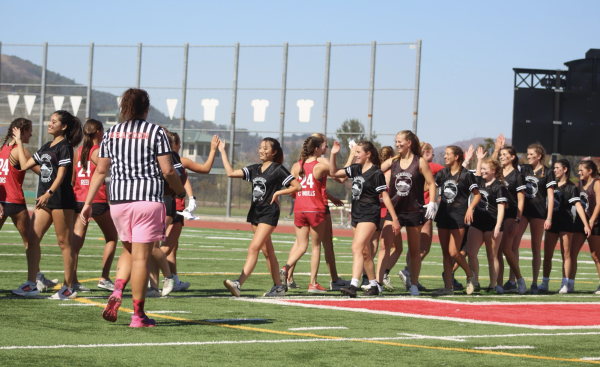In recent years, elite high school student-athletes have been faced with a difficult decision in the college recruiting process: whether to make a non-binding, verbal commitment to a school early or to wait until a binding commitment can be made as a senior. Unfortunately for these students, it is not as straightforward as it may seem.
The trend of early verbal commitments, which has become increasingly popular in sports such as lacrosse and volleyball, has forced some athletes to make significant decisions regarding their academic futures before they have experienced even half of their high school careers – or less.

In an effort to secure recruiting classes as early as possible, hyper-competitive college coaches are offering student-athletes a potential spot on the roster. The student may choose to accept or decline the non-binding proposal, which is known as a “verbal agreement.”
The National Collegiate Athletics Association (NCAA) does not acknowledge these informal agreements, which do not require any kind of written documentation. In the fall of a student-athlete’s senior year, one may sign a National Letter of Intent (NLI), which is a binding agreement to play a sport at a college, often including financial support. The NLI process is governed by the NCAA.
The official NLI website defines a verbal commitment as a non-binding, oral agreement between a prospective student-athlete and a school. However, it is not uncommon for an athlete who had verbally committed to one school to ultimately sign an NLI with a different school come senior year. And likewise, as the website explains, “A school may accept your verbal commitment and later offer the NLI to another prospective student-athlete.”
Sophomore lacrosse player Jack Elders verbally committed to Georgetown University this past July, and, from his perspective, the agreement was simply his acceptance of an offer extended by the coach.
The opportunity to play sports at a Division I level may no longer exist by the time an athlete becomes a senior, Elders said.
“The top Division I schools finish off my graduating year’s [2017] recruiting class by the summer of 2015,” Elders said. “If I wanted to play Division I, I had to go now. It all happens early.”
When asked about the consequences had he chosen to decline the offer to verbally commit to Georgetown, Elders said that he would’ve fallen down the short list of athletes they were recruiting.
Elders said that this pressure to “commit” early to potentially secure a spot on the roster is a major factor for athletes in the decision-making process.
Laura Schmitt has been the head coach of both cross country and track and field at Redwood since 1986. Although verbal commitments are rare in those sports, Schmitt has had many runners go on to compete in college and thus has experienced the positives and negatives first-hand.
“The Division I coaches don’t like it, and the athletes don’t like it,” Schmitt said. “But, if you don’t commit, then your spot is taken. It’s a very stressful situation. From a coach’s perspective, if they don’t get the kid they want, they have to go to the next kid – they can’t wait around. I don’t think it’s good for kids to make this decision so early, but in certain sports you may not have the luxury of waiting until you’re a senior.”
Junior Hayden Dean verbally committed to play lacrosse at the University of Denver over the summer. Dean is confident she will end up at Denver in the fall of 2016, although she recognized the possibility that much can change in the next two years.
“They recruited me as what they see me playing like in two years,” Dean said. “I know [my level of play] needs to be at where they want it, so I have to keep improving and playing the sport.”
Dean cited the apparent relief of not having to deal with the college process as one of the main advantages of committing early.
Softball player Sabrina Nuñez verbally committed to UC Berkeley in her first semester at Redwood as a freshman last year. The sophomore also referred to the general avoidance of the college application and selection process as a beneficial aspect of committing to college early.

“Having that relief of not having to worry about what school you’re going to takes a lot of pressure off,” Nuñez said.
As a former Redwood and UC Berkeley volleyball player and current member of the Cal volleyball coaching staff, Meagan Schmitt has some experience in this area.
“In my eyes, a verbal commitment is binding,” she said. “However, I understand that a lot can happen between your sophomore year and your senior year. If I commit to an athlete, it has to be an extreme circumstance for me to break my end of the deal.”
Senior Alex Kosinski intends to play football for the University of Arizona next year after verbally committing to the school this past spring. If he had chosen to wait, he believes his chances of being able to play Division I football would have significantly decreased.
Similar to the other athletes, Kosinski felt more comfortable having made the decision to commit.
“Going into summer of senior year, being committed, and knowing what I’m going to do was a much better option,” Kosinski said.
After graduating from Redwood last year, Patrick Tracy enrolled at the University of Michigan this fall and will play lacrosse for them this spring. Having endured the recruiting process since his sophomore year and then verbally committing to Brown University shortly before his junior year, Tracy has developed a strong opinion about it all.
“At the time I felt good where I was and with the school I chose,” he said. “But as I got older, my interests changed. I had two whole years to change.”
Tracy disapproves of the culture of early recruiting, and blames this atmosphere on the competitiveness of college sports programs.
“I don’t think people know who they are or what they want until they’re older,” Tracy said. “It puts too much pressure on kids because if they don’t commit now, the school’s recruiting class will get filled, and then they won’t be able to take the kid later on. It’s really hard.”
Redwood College and Career Specialist Paula Vantrease noted some drawbacks of committing early.
“Until that student gets that written commitment, it’s not a commitment,” Vantrease said. “High school is all about growth and learning who you are. To say that at the end of your sophomore year, you really know that’s what you want to do… it’s hard for me to think that students would know.”
Vantrease believes that sports should not comprise the whole reason a student chooses a school. From her experience, high school students “change considerably” throughout their four years.
“I hope when students decide to commit to a school for a sport, they’ve really given [the academic component] some serious thought,” Vantrease said.
Fred Huxham, Sr. is the father of recent Redwood graduate Fred Huxham Jr., the California state champion of the 3200 meter race last spring who is now a freshman at the University of Washington. Huxham, Sr. experienced the recruiting process with his son, who was recruited by colleges since his freshman year. Huxham, Jr. held off making any verbal commitment until he was a rising senior.
“People have an idea that if you commit early, you’re all set,” Huxham, Sr. said. But it pays to wait because you may, over time, find out what you want to study as you go through school. You may want to go to a school that has what you need academically.”
“It’s important to go to a few schools, get a feel for the campuses, and spend some time with the coach. Until you do that, you can’t make a good decision. You might have to wait until the beginning of your senior year to really make the right decision,” he said.
Independent college counselor Alistair Grant, who works with a variety of Marin high school students, also pointed out some negative aspects of committing early, especially from an academic perspective.
“To have a coach’s support at such an early stage seems to make the college process less intimidating, less daunting. I suspect everyone would respond well to being wanted. But… I am not sure high school freshmen and sophomores know themselves well enough to think about their futures in quite the same way as juniors and seniors,” Grant said in an email interview.
Grant believes that sports should not necessarily have such a significant influence on a student’s educational career.
“When student-athletes make a verbal commitment at such a young age, I wonder how many of them have considered the culture, or ethos of a school and how many make the decision based largely on the chance to play a sport,” he said. “I have always believed college is first and foremost a place of learning.”





